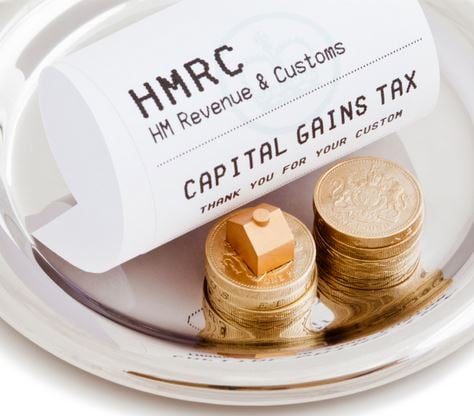
20:26 PM, 15th May 2024, About 8 months ago 2
Text Size
I am selling a buy to let property that I did a £100,000 extension on 15 years ago.
Can I claim this as a capital cost on my CGT return even though I no longer have the receipts?
Also, can I include the SDLT I paid at the time, which I don’t have any documentation for either?
I have always submitted my own tax returns and don’t have an accountant.
Thanks for your help.
Mark H
Please see the response from the Property118 Tax team below.
Hi Mark H
In answer to your first question about claiming for the extension as a capital cost even though you no longer have the receipts;
In principle, Yes, the cost of the extension can potentially be added to the Capital Gains Tax (CGT) return when the property is sold, even if the receipts are no longer available. Here are the key points to consider:
1. Capital Improvements. The cost of the extension qualifies as a capital improvement, which can be added to the base cost of the property for the purpose of calculating CGT. This increases the base cost and reduces the gain on which CGT is payable.
2. Evidence. While receipts are the most straightforward form of evidence, they are not the only acceptable form. If receipts are lost, other documentation such as bank statements, contracts, or invoices from the time the work was carried out can also serve as evidence. Additionally, photographs, builder’s affidavits, or any other form of proof demonstrating that the improvement was made can be useful.
3. Reasonable Estimates. If you cannot obtain any documentation, you might be able to provide a reasonable estimate of the cost. HMRC may accept these estimates, especially if the improvements are obvious upon inspection of the property.
4. Record Keeping. It’s important to keep all records related to the property and any improvements for as long as you own the property and at least until the CGT liability is settled after the sale. This helps in justifying the costs claimed.
5. Professional Advice. Consider consulting with a tax professional or accountant who can help compile and present your case to HMRC, ensuring that all possible evidence and justifications are included.
To summarise, while the absence of receipts complicates matters, it does not necessarily preclude the ability to claim the cost of the extension. Alternative forms of documentation and reasonable estimates can still be used to substantiate your claim.;
Now turning to your second question about SDLT;
Stamp Duty Land Tax (SDLT) can be considered a capital cost by HMRC when calculating Capital Gains Tax (CGT). Specifically, SDLT paid on the acquisition of a property can be included in the property’s acquisition cost. This means that when you eventually sell the property, you can deduct the SDLT paid, along with other allowable costs, from the sale proceeds to calculate your capital gain.
This inclusion helps to reduce the taxable gain and thus potentially the amount of CGT owed. However, it’s essential to maintain accurate records of all such costs to substantiate your claim if required by HMRC.
WORD OF CAUTION – HMRC can very easily look up how much you paid for the property and the SDLT rates at the time, so it is incredibly important that your claim accurately reflects the SDLT that would have been paid at the time.
We hope this helps.
Jill Church
Become a Member
If you login or become a member you can view this members profile, comments, posts and send them messages!
Sign Up10:24 AM, 16th May 2024, About 8 months ago
I know it's not a help here, but maybe help to other readers.
I keep a lever arch "permanent file" , in which I file all documents which may be required in future, such as gas safety certs, electrical certificates, hmo licences etc etc.
Also copies of planning permission and invoices etc relating to capital expenditure.
Saves having to look back in older years paperwork when something is needed.
GlanACC
Become a Member
If you login or become a member you can view this members profile, comments, posts and send them messages!
Sign Up16:42 PM, 16th May 2024, About 8 months ago
I have done this twice now when selling properties. Only for up to £15k though. As my account says you can claim what you like (reasonable though) without receipts but if investigated by HMRC you must be able to prove the work has been done.
On a separate point, legally you only have to keep receipts for up to 6 years as this is the first bite that HMRC can 'go back'. It is unreasonable to be asked to keep every receipt for eternity BUT having said that I scan all receipts and do keep them for eternity